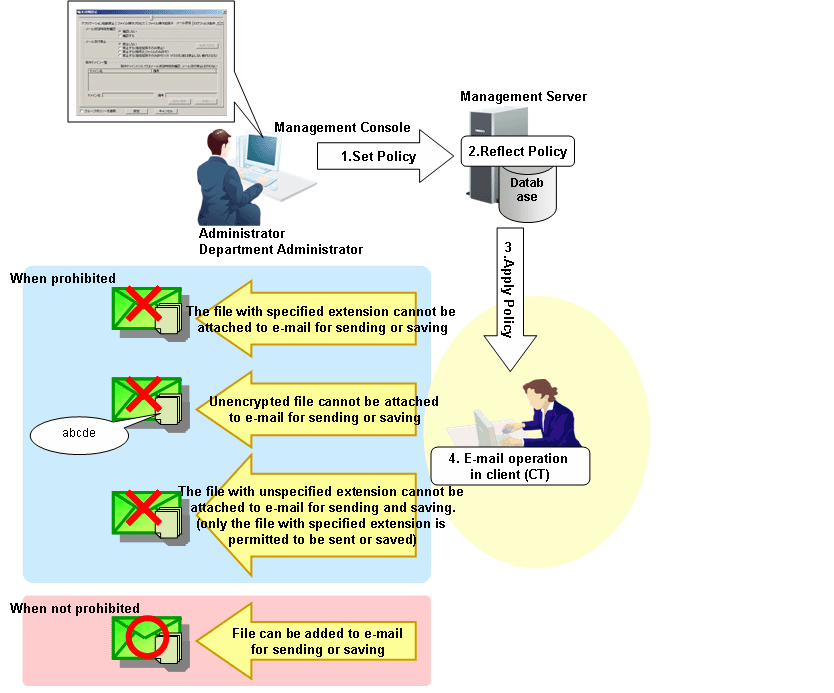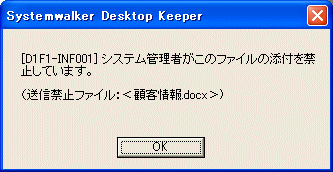This function is not available.
By setting the E-mail attachment prohibition policy, attaching a prohibited file to an E-mail to send or save can be prohibited in the client (CT) PC.
Specify the file to be prohibited in the policy.
In case of port monitoring mode, even if there is only one prohibited file in the attachment, the E-mail (message body and all attachment) cannot be sent.
In V12.0L20-V13.0.0 compatible mode, it has nothing to do with the settings of recipient address confirmation when sending an E-mail; if a prohibited file and non-prohibited file exist at the same time, the E-mail will be sent only with the non-prohibited file attached. When an E-mail is sent with just a prohibited file attached, only the E-mail text will be sent.
Note
Functions may be restricted due to the environment being used
When setting the policy, functions may be restricted due to the environment being used.
Steps to make prohibition effective through policy setting

Set Policy
Set policy in the [Terminal Initial Settings] window, the [User Policy Settings] window or the window after the Management Console is started (CT policy settings window).
Set the conditions for prohibiting E-mail attachments in the [E-mail Sending] tab.
Reflect Policy
The set policy will be reflected to the database.
Apply Policy
The set policy will be applied to the client (CT).
E-mail operation
When sending an E-mail in the client (CT), the status will become one of the following:
Files with specified extension cannot be attached to the E-mail to send or save
Files that are not encrypted cannot be attached to the E-mail to send or save
Files without specified extension cannot be attached to the E-mail to send or save
(Only files with specified extension can be sent or saved)
Files can be attached to the E-mail to send or save
When prohibited
When the E-mail attachment is prohibited, the prohibition window will be displayed in the client (CT). The window is as follows.
In V12.0L20~V13.0.0 compatible mode

In port monitoring mode
